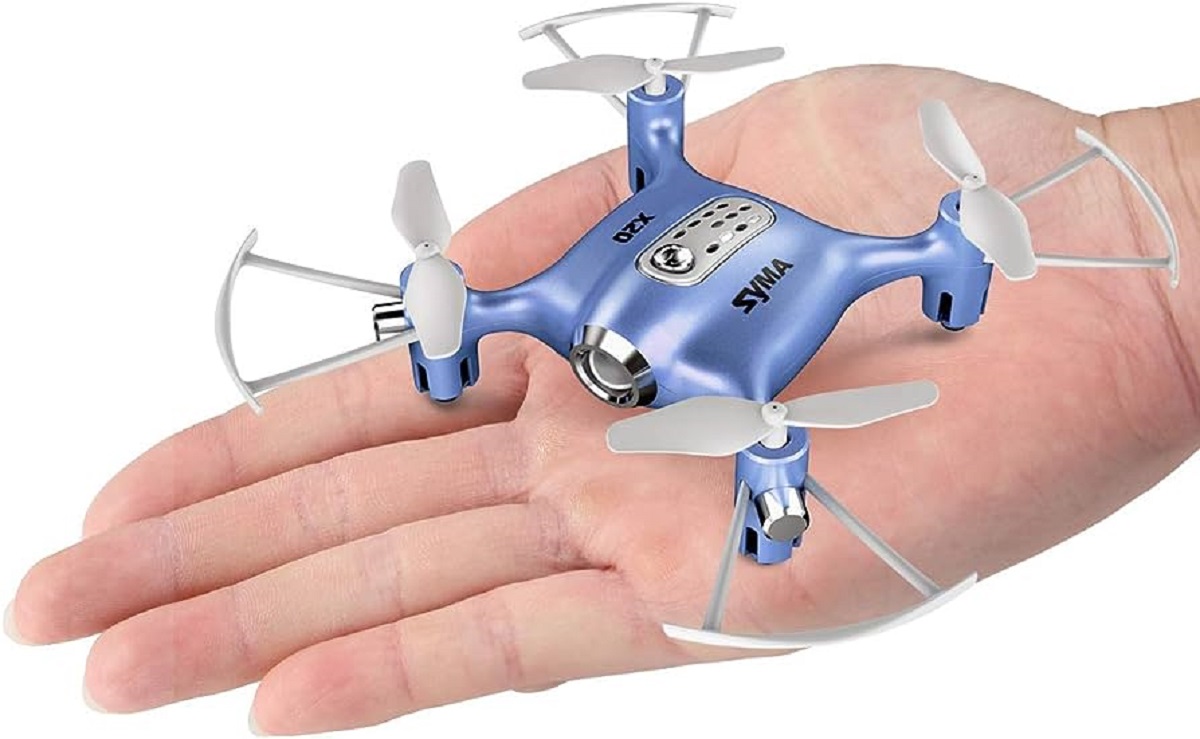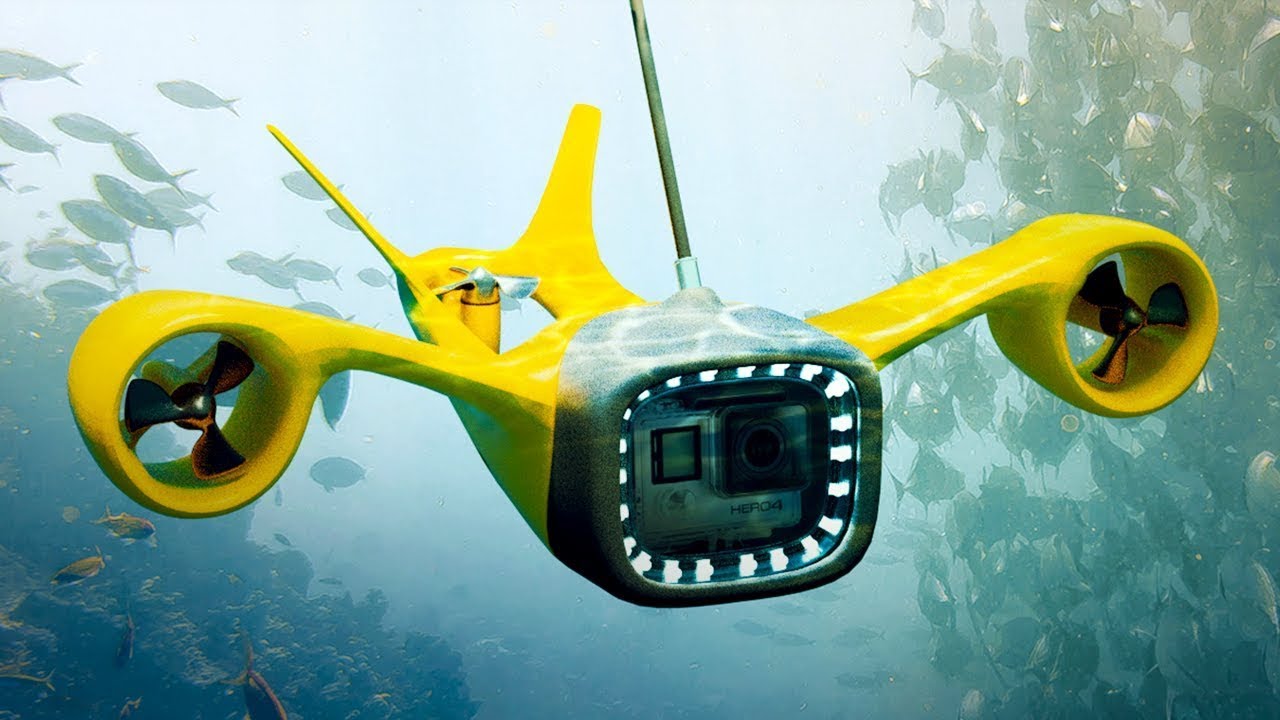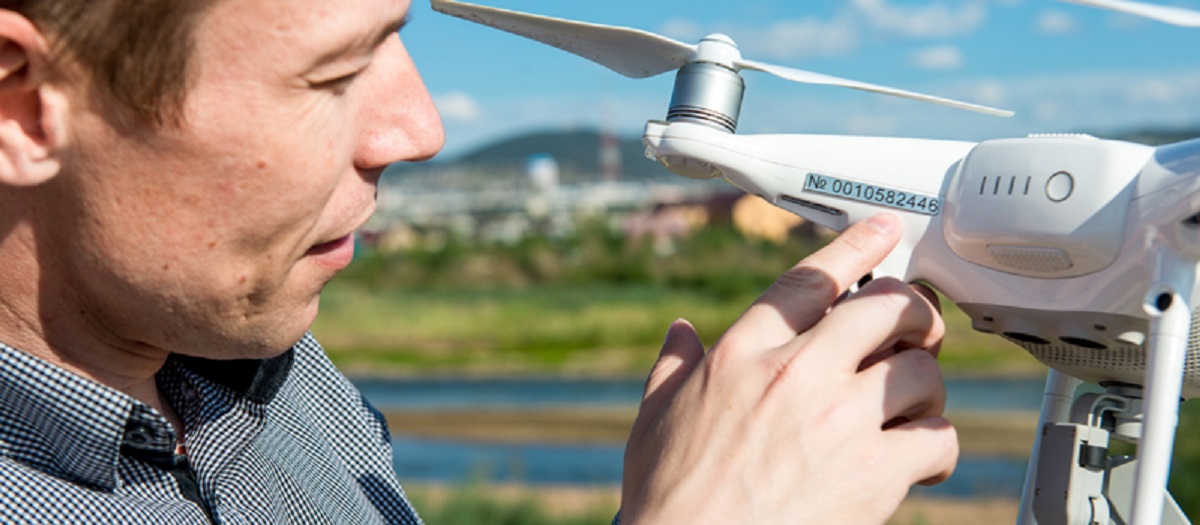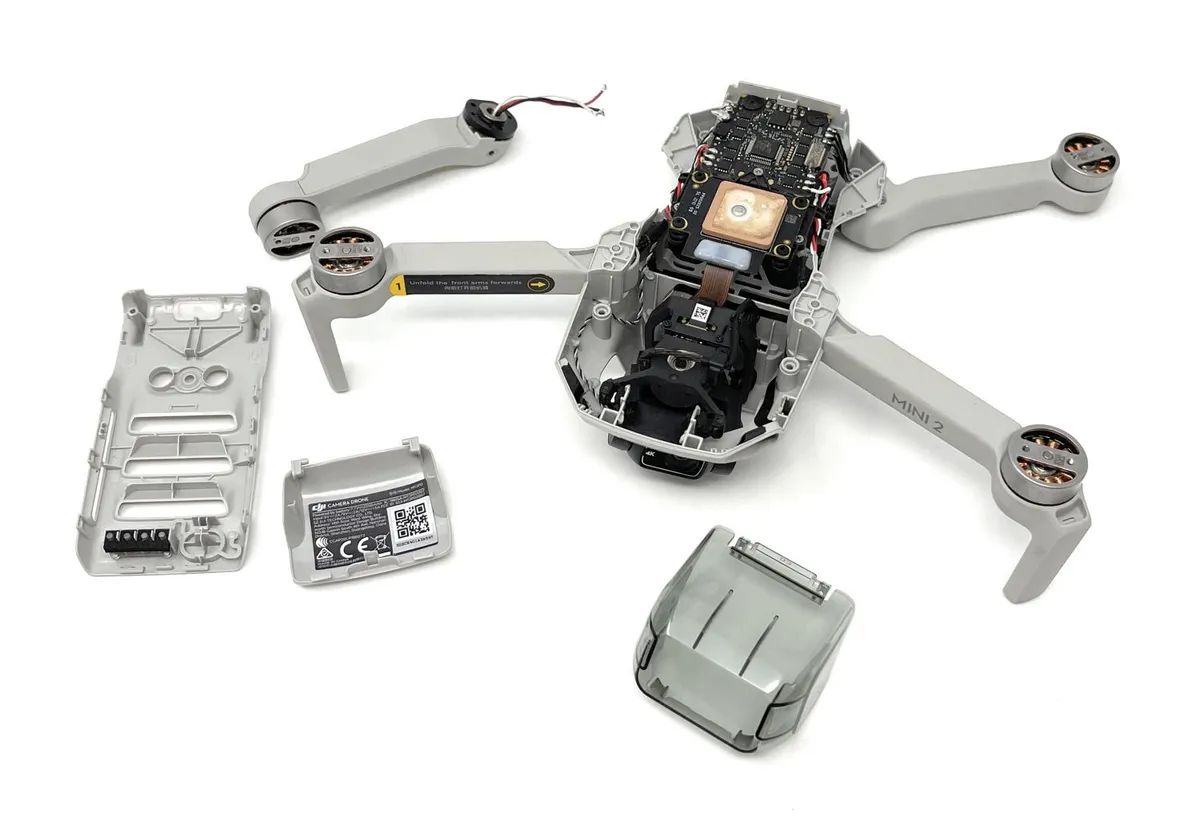Introduction
Welcome to the exciting world of drone operators! With the proliferation of unmanned aerial vehicles (UAVs), commonly known as drones, the demand for skilled professionals who can safely and effectively operate these devices has skyrocketed. Drone operators play a crucial role in various industries, from aerial photography and videography to surveying and inspections. They are responsible for capturing stunning aerial shots, collecting data, and ensuring the smooth operation of drones.
Operating a drone requires a unique combination of technical skills, creativity, and attention to detail. As a drone operator, you’ll need to have a solid understanding of drone technology, flight regulations, and camera equipment. You’ll work closely with clients, photographers, and videographers to achieve their vision and capture breathtaking footage from the sky.
In this article, we’ll dive into the details of what it takes to become a drone operator, the skills and qualifications required, and the various responsibilities you can expect in this profession. We’ll also explore the different types of drone operators and industries that commonly hire them. Additionally, we’ll discuss the challenges faced by drone operators and provide some valuable tips for success in this exciting field.
So, if you’ve ever dreamed of taking to the skies and operating cutting-edge technology to capture stunning visuals, then becoming a drone operator might just be the perfect career path for you. Let’s explore the intricacies of this profession and discover the skills and knowledge you’ll need to succeed.
What is a drone operator?
A drone operator is a skilled professional who is responsible for piloting unmanned aerial vehicles (UAVs) or drones. These individuals utilize remote control systems to fly drones and operate various equipment attached to the aircraft, such as cameras, sensors, or other payloads. Drone operators are essential in capturing aerial footage for a wide range of purposes, including photography, videography, surveying, mapping, inspections, and more.
Drone operators are well-versed in the technical aspects of drone operation. They understand the principles of flight, navigation, and safety protocols. They are also knowledgeable about airspace regulations and restrictions, ensuring that they comply with all legal requirements and maintain the safety of the surrounding environment.
Beyond the technical skills, drone operators must also possess a keen eye for composition and aesthetics. They need to understand the art of capturing compelling shots from unique angles and perspectives. Whether it’s capturing stunning landscapes, documenting construction progress, or assisting with emergency response efforts, drone operators play a critical role in providing valuable visual content.
In addition to operating the drone, drone operators are often responsible for pre-flight and post-flight tasks. They perform pre-flight inspections to ensure that the drone is in proper working condition and all components are functioning as expected. After the flight, operators review and analyze the captured data or footage and may edit or process the content, depending on the requirements of the project.
Drone operators work in various industries, including film and media production, real estate, construction, agriculture, and many more. Their skills and expertise enable them to provide unique perspectives and data that were previously inaccessible or prohibitively expensive. By utilizing drones, these professionals can accomplish tasks more efficiently and safely, opening up new possibilities in numerous fields.
In the next section, we’ll discuss the skills and qualifications necessary to become a drone operator and delve deeper into the responsibilities that come with this exciting profession.
Required Skills and Qualifications
Becoming a successful drone operator requires a combination of technical skills, knowledge, and personal attributes. While specific requirements may vary depending on the industry and employer, there are certain skills and qualifications that are generally expected from drone operators.
First and foremost, drone operators must have a thorough understanding of drone technology and operation. They should be familiar with different types of drones, their capabilities, and limitations. Knowledge of the various flight modes, control systems, and safety measures is crucial to ensure proper and safe operation of the drone.
Drone operators also need to stay updated on the rules and regulations governing UAV operations. Depending on the country or region, there may be specific legal requirements such as obtaining a drone pilot license or certification. Familiarity with airspace regulations, flight restrictions, and privacy laws is essential to operate drones legally and responsibly.
Technical proficiency in operating the drone’s remote control system is another key skill. Drone operators must be able to handle the controls confidently, navigate the drone smoothly, and perform complex maneuvers when necessary. They should also have a good sense of spatial awareness and hand-eye coordination to ensure precise movements of the drone.
Photography and videography skills are highly valued in the field of drone operations. Understanding composition, lighting, and framing will allow drone operators to capture visually stunning shots. They must also be proficient in operating camera equipment and adjusting settings to achieve the desired visual effects.
Attention to detail is crucial for drone operators, as they need to ensure the safety and reliability of the equipment. This includes conducting thorough pre-flight inspections, monitoring the battery life and signal strength during flights, and performing regular maintenance and repairs as needed.
In addition to technical skills, certain personal attributes contribute to the success of a drone operator. These include strong communication skills to effectively collaborate with clients or team members, adaptability to handle unexpected challenges during flights, and problem-solving abilities to troubleshoot technical issues that may arise.
While formal education in drone operations is not always required, obtaining specialized training and certifications can greatly enhance one’s credibility and job prospects in the industry. Many training programs and online courses are available that cover all aspects of drone operation, safety protocols, and relevant regulations.
By possessing the necessary skills, qualifications, and personal attributes, aspiring drone operators can set themselves up for success in this thrilling and rapidly growing field.
Responsibilities of a Drone Operator
As a drone operator, you’ll have a variety of responsibilities that encompass both the technical and operational aspects of drone use. While the specific duties may vary depending on the industry and project requirements, there are some common responsibilities that come with being a drone operator.
One of the primary responsibilities of a drone operator is to safely and effectively pilot the drone during flights. This includes planning and executing flight missions, ensuring compliance with airspace regulations, and maintaining situational awareness throughout the flight. Operators must possess the skills to operate the drone smoothly, perform maneuvers, and handle emergency situations if they arise.
Before each flight, drone operators are typically required to perform pre-flight checks and inspections. This involves examining the drone’s components, verifying that all systems are functioning correctly, and ensuring that the UAV is safe to fly. They will also need to calibrate onboard sensors, check battery levels, and ensure that the camera or equipment is securely attached.
During the flight, drone operators are responsible for capturing high-quality imagery or data, depending on the purpose of the mission. This requires a solid understanding of photography or data collection techniques and the ability to operate the drone’s camera or other sensors effectively. They must strive to achieve the desired shots or data while maintaining safe flight parameters.
Post-flight responsibilities include reviewing and analyzing the footage or data collected during the flight. Drone operators may need to transfer the files to a computer or other storage devices, organize the data, and deliver it to clients or team members according to project requirements. In some cases, operators may need to edit or process the content to enhance its quality or add visual effects.
Drone operators also play a vital role in ensuring the safety of the flight operations and those in the surrounding area. They must assess the environmental conditions, such as wind speed and weather, before deciding to fly the drone. Additionally, operators must remain vigilant throughout the flight, monitoring for any potential hazards or risks and taking appropriate actions to avoid accidents or injuries.
Communication and collaboration are essential responsibilities of drone operators, particularly when working on larger projects or with a team. Operators need to effectively communicate with clients, photographers, videographers, or other team members to understand their requirements and expectations. They should be able to provide updates on the progress of the flight, address any concerns, and ensure that the final deliverables meet the desired standards.
Lastly, drone operators must actively stay updated on drone regulations, industry trends, and technological advancements. This helps them adapt to any changes in regulations, utilize the latest tools and features that enhance their operations, and continuously improve their skills and knowledge.
By fulfilling these responsibilities, drone operators ensure smooth and successful operations while delivering high-quality results to clients or stakeholders.
How to Become a Drone Operator
If you’re intrigued by the idea of becoming a drone operator and want to turn your passion for drones into a rewarding career, here are some steps you can take to get started:
1. Familiarize yourself with drone regulations: Start by understanding the regulations and requirements for drone operations in your country or region. Research the necessary licenses or certifications needed to legally operate a drone for commercial purposes.
2. Obtain drone pilot certification: Many countries require drone operators to obtain a drone pilot certification. This typically involves passing an exam to demonstrate your knowledge of drone operation, flight safety, airspace regulations, and other related topics. Take the time to study and prepare for the exam to increase your chances of success.
3. Complete drone training courses: While certification exams cover the essential knowledge, it’s beneficial to enroll in specialized drone training courses. These courses provide hands-on experience, practical flight training, and in-depth knowledge of drone technology, flight maneuvers, camera operation, and more. Look for reputable training providers or online courses to enhance your skills.
4. Practice flying drones: The more practice you get behind the controls of a drone, the better you’ll become. Invest in a quality drone and regularly practice flying in different environments and conditions. This will help you develop your piloting skills and gain confidence in maneuvering the drone effectively.
5. Specialize in a specific industry or niche: Consider specializing in a particular industry or niche to differentiate yourself in the market. Whether it’s aerial photography, cinematography, real estate, agriculture, or surveying, focusing on a specific area allows you to gain expertise and cater to the unique needs of clients in that industry.
6. Build a portfolio: As with any creative profession, a strong portfolio is crucial in showcasing your skills and attracting clients. Capture impressive aerial shots, create stunning videos, or compile examples of data collected through drone operations. Having a portfolio will make it easier to demonstrate your capabilities and land freelance gigs or job opportunities.
7. Network and market yourself: Join drone communities, attend industry events, and connect with professionals in related fields to expand your network. Building professional relationships can lead to potential collaborations and job opportunities. Additionally, market your services through a website, social media platforms, or online directories to increase your visibility and attract clients.
8. Stay updated with technology and industry trends: Drone technology is constantly evolving, so it’s crucial to stay up to date with the latest advancements and industry trends. Regularly research new drone models, camera equipment, software, and other tools that can enhance your operations. Continuous learning and improvement will keep you at the forefront of the industry.
By following these steps and continuously honing your skills, you can embark on a successful career as a drone operator and turn your passion for drones into a fulfilling profession.
Different Types of Drone Operators
Drone operators work in various industries and sectors, each with its own unique requirements and applications. Depending on the specific field, drone operators may have different job titles and perform specialized tasks. Here are some of the different types of drone operators:
1. Aerial Photographers and Videographers: These drone operators specialize in capturing stunning aerial photographs and videos. They work closely with photographers and videographers to provide unique perspectives and breathtaking shots for a range of projects, including weddings, real estate listings, tourism promotions, and film productions.
2. Surveyors and Mappers: Drone operators in surveying and mapping use drones equipped with high-resolution cameras or LiDAR systems to collect data and create accurate maps and 3D models of landscapes and structures. They play a crucial role in construction, urban planning, land surveying, and environmental monitoring.
3. Inspectors: Drones are increasingly being used for inspections in industries such as infrastructure, energy, and telecommunications. Inspection drone operators can remotely inspect buildings, power lines, wind turbines, and other structures, providing detailed visual data quickly and safely. Their work helps identify maintenance needs, detect damage, and assess structural integrity.
4. Agricultural Technicians: Agricultural drone operators assist farmers by using drones to monitor crop health, analyze soil conditions, and optimize irrigation and fertilization. They capture aerial imagery or use sensors to identify problem areas, provide crop counts, and map field boundaries. Their data-driven insights help farmers make informed decisions and improve crop yields.
5. Emergency Responders: In emergency situations, drones can provide critical support to first responders. Drone operators in this field assist with search and rescue operations, fire monitoring, and disaster assessment. They use thermal cameras and other sensors to locate individuals or assess the condition of inaccessible areas, helping to save lives and guide emergency responses.
6. Filmmakers and Content Creators: In the film and media industry, drone operators work closely with directors and cinematographers to capture stunning aerial shots for movies, documentaries, and commercials. They add a cinematic touch to productions, capturing dynamic footage that was previously only possible with expensive helicopters or cranes.
7. Scientific Researchers: Drones are increasingly used in scientific research, allowing researchers to access remote locations and collect valuable data. Drone operators in the research field assist scientists in fields such as environmental science, wildlife conservation, marine biology, and archaeology. They capture aerial images, take samples, or conduct surveys to gather vital information.
These are just a few examples of the different types of drone operators. The applications of drones continue to expand, leading to new opportunities in various industries. As technology advances, it’s likely that we will see even more specialized roles and applications for drone operators in the future.
Industries that Hire Drone Operators
The use of drones has become increasingly prevalent across a wide range of industries. From enhancing efficiency to improving safety, drones provide valuable insights and solutions. As a result, drone operators are in high demand in several sectors. Here are some of the industries that commonly hire drone operators:
1. Film and Media Production: The film and media industry benefits greatly from the unique perspectives that drones offer. Aerial footage captured by drone operators adds a cinematic touch to movies, TV shows, commercials, and documentaries. Drones allow filmmakers to capture stunning visuals that were once only possible with expensive equipment or helicopters.
2. Real Estate: Drone operators are vital in the real estate industry for capturing aerial views of properties. These aerial photographs and videos provide potential buyers with a comprehensive overview, showcasing the property’s features, size, and surrounding amenities. This technology has revolutionized the way real estate agents market properties and attract potential buyers.
3. Construction and Infrastructure: Drones are increasingly utilized in construction and infrastructure projects. Drone operators play a crucial role in surveying sites, monitoring progress, and conducting inspections. They provide high-resolution images, 3D models, and data analysis, assisting project managers in visualizing the site, ensuring quality control, and identifying potential issues more efficiently.
4. Agriculture: Agriculture drone operators assist farmers in optimizing crop management. Drones equipped with multispectral cameras and sensors capture detailed images and collect data about crop health, soil moisture, and nutrient levels. By analyzing this information, farmers can identify areas that require attention, improve irrigation systems, and maximize crop yield.
5. Energy and Utilities: The energy and utilities sector relies on drone operators to inspect power lines, wind turbines, solar farms, and other infrastructure. They capture high-resolution imagery or thermal footage, providing crucial data to identify maintenance needs, detect potential faults, and ensure the safety and efficiency of these critical systems.
6. Environmental Monitoring: Drones have become valuable tools in environmental monitoring and conservation efforts. Drone operators assist researchers in studying wildlife, ecosystems, and natural resources. They collect aerial data, conduct surveys, and monitor habitats and protected areas, providing valuable insights for wildlife conservation and environmental management.
7. Emergency Services: Drone operators are increasingly incorporated into emergency response teams. Drones equipped with thermal cameras and sensors can quickly assess areas during search and rescue operations, monitor fire behavior, or investigate hazardous situations. These drones provide real-time visual information and help emergency services make informed decisions while ensuring the safety of their personnel.
These are just a few examples of the industries that actively hire drone operators. With the versatility and potential of drone technology, the demand for skilled operators will continue to grow as more industries recognize the value that drones bring to their operations.
Challenges Faced by Drone Operators
While being a drone operator can be an exciting and fulfilling career, it’s important to acknowledge the challenges that come with the profession. Here are some of the common challenges faced by drone operators:
1. Regulatory Restrictions: Drone operators must navigate complex and ever-changing regulations and airspace restrictions. Obtaining the necessary licenses and certifications can be time-consuming and involve passing exams and meeting specific requirements. Operators need to stay updated on the latest rules and comply with the legal obligations to ensure safe and responsible drone operations.
2. Weather Conditions: Weather conditions can significantly impact drone operations. High winds, rain, or extreme temperatures can impede flight and affect the stability and performance of the drone. Drone operators need to carefully assess weather conditions before flights and have contingency plans in place in case weather conditions worsen during a mission.
3. Technical Challenges: Drone technology continues to evolve rapidly, and drone operators must stay up to date with the latest equipment and software advancements. Technical challenges such as connectivity issues, software glitches, and equipment malfunctions can occur during flights, requiring operators to troubleshoot and resolve problems quickly to ensure a smooth operation.
4. Safety Concerns: Drone operators have a responsibility to operate their drones safely and minimize risks to people, property, and the environment. They must follow best practices for safe flight operations, avoid flying near restricted areas, and ensure they have proper insurance coverage. Maintaining situational awareness and vigilance during flights is essential to prevent accidents and ensure the safety of both the drone operator and others in the vicinity.
5. Privacy Concerns: Privacy concerns can arise when drones are equipped with cameras and are capturing imagery in public or private spaces. Drone operators must be knowledgeable about privacy laws and regulations and respect the privacy of individuals while performing their operations. Communicating effectively with clients and obtaining necessary permissions or releases for capturing footage in certain areas is crucial to addressing privacy concerns.
6. Battery Life and Flight Time: Limited battery life and flight time are inherent challenges for drone operators. Drones typically have a limited flight duration, requiring operators to plan their flights efficiently and account for battery changes or recharging. Long-distance missions or extensive data collection projects may require multiple battery swaps or even equipment redundancy to ensure uninterrupted operations.
7. Competitiveness and Market Saturation: As the drone industry continues to grow, the market becomes more competitive. Licensed drone operators are finding it crucial to differentiate themselves and prove their expertise. Standing out from the competition and securing contracts or job opportunities can be a challenge, requiring operators to continuously market their skills, develop a strong portfolio, and build professional networks.
Addressing these challenges requires drone operators to stay informed, develop their skills, and adapt to the evolving industry landscape. By overcoming these hurdles, operators can succeed in providing valuable services and contributing to the growth and acceptance of drones in various industries.
Tips for Success as a Drone Operator
Becoming a successful drone operator takes more than just technical skills. Here are some valuable tips to help you thrive in this dynamic field:
1. Master Your Drone: Take the time to fully understand and familiarize yourself with your drone. Read the user manual, practice flying in different conditions, and learn about the various flight modes and features. The better you know your equipment, the more capable you will be as a drone operator.
2. Stay Updated with Regulations: Keep yourself informed about the current drone regulations and stay up to date with any changes. Familiarize yourself with airspace restrictions, licensing requirements, and any specific rules for commercial drone operations in your area. Adhering to the regulations will not only ensure compliance but also enhance your professionalism.
3. Invest in Training: Enroll in specialized drone training courses to enhance your skills and knowledge. There are various online and in-person courses available that cover flight techniques, aerial photography, mapping, and safety protocols. Continuous learning and staying updated with the latest industry practices will set you apart from the competition.
4. Build a Strong Portfolio: Curate a portfolio of your best work to showcase your skills and capabilities as a drone operator. Include a variety of aerial photographs, videos, and data samples that demonstrate your expertise in different industries and applications. A strong portfolio will help you attract clients and stand out in a crowded market.
5. Network and Collaborate: Establish connections within the drone industry and related fields. Attend industry events, join online communities, and network with other professionals. Collaborating with photographers, videographers, and professionals in complementary industries can open up new opportunities and expand your client base.
6. Focus on Safety: Prioritize safety during every aspect of your operations. Conduct thorough pre-flight inspections, follow flight regulations, and assess environmental conditions before each flight. Pay attention to equipment maintenance and stay vigilant during flights to ensure the safety of yourself, others, and the drone.
7. Develop Specialized Skills: Consider specializing in a specific niche or industry. Becoming an expert in a particular vertical, such as aerial cinematography, agricultural mapping, or infrastructure inspections, can make you highly sought after in that field. Specialization allows you to develop deep knowledge and deliver tailored services to clients.
8. Embrace Continuous Improvement: Embrace a mindset of continuous improvement and stay updated with the latest technological advancements. Explore new features, equipment, and software that can enhance your operations. Seek feedback and learn from every project to refine your techniques and deliver ever-improving results.
9. Deliver Exceptional Customer Service: Strive to provide exceptional customer service to your clients. Communicate clearly, manage expectations, and respond promptly to inquiries. Going above and beyond to exceed client expectations will not only result in satisfied customers but also lead to valuable referrals and repeat business.
10. Stay Passionate: Lastly, maintain your passion for drones and the work you do. As a drone operator, your enthusiasm and dedication will shine through in your work. Constantly seek opportunities to push the boundaries, explore creative ideas, and contribute to the ever-evolving field of drone operations.
By following these tips and embracing a continuous learning mindset, you can position yourself for success as a drone operator and thrive in this exciting industry.
Conclusion
Becoming a drone operator opens up a world of possibilities and career opportunities. As technology advances, the demand for skilled professionals in this field continues to grow across various industries. By mastering the technical skills, staying updated with regulations, and continuously improving your craft, you can excel as a drone operator.
Remember that success as a drone operator goes beyond piloting a drone. It involves understanding the industry you operate in, building strong relationships, and delivering exceptional results to your clients. Developing specialized skills, creating a standout portfolio, and embracing a mindset of continuous improvement will set you apart from the competition.
However, it’s important to be aware of the challenges that come with being a drone operator. Navigating complex regulations, adapting to weather conditions, and addressing safety and privacy concerns require diligence and professionalism.
Keep your passion for drones alive and let it drive you forward. Embrace opportunities to network, collaborate, and specialize in specific industries or applications. Strive to provide outstanding customer service and build a reputation for delivering exceptional work.
As the drone industry continues to evolve, staying updated with the latest technologies and trends will be key to your success. Embrace the ever-changing nature of this field and remain adaptable to new opportunities and advancements that come your way.
Whether you’re capturing stunning aerial photographs, conducting surveying and mapping tasks, or assisting in emergency response efforts, being a drone operator allows you to explore new perspectives and redefine what’s possible.
So, if you’re passionate about drones and ready to embark on an exciting career, embrace the challenges, continue learning, and strive for excellence as a drone operator. The sky’s the limit!

























